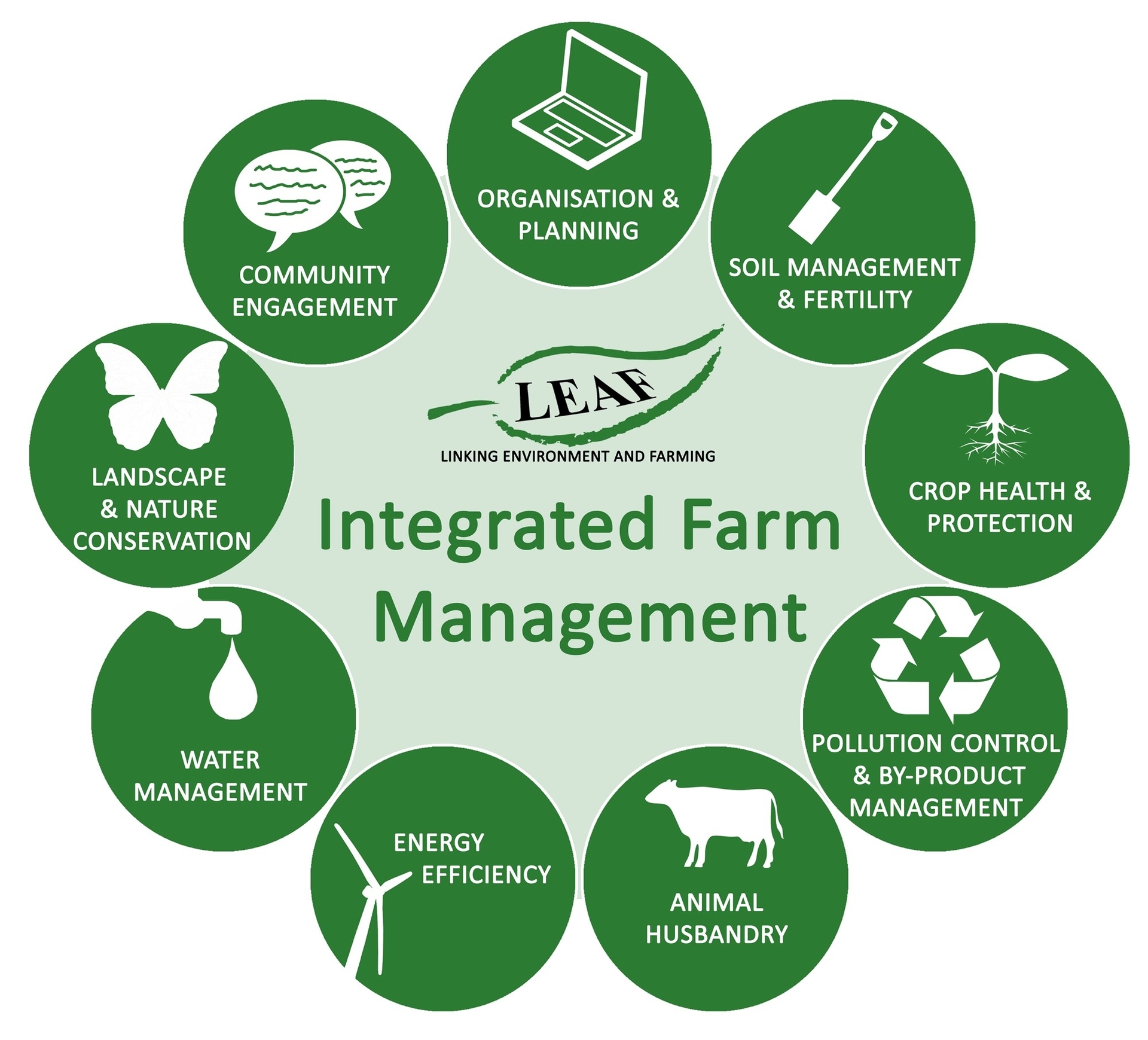
Integrated Farm Management (IFM) is a whole-farm business approach that aims to deliver more sustainable farming practices. It is a site-specific farm business approach that uses the best of modern technology and traditional methods to deliver prosperous farming that enriches the environment and engages local communities .
IFM is made up of nine sections, which together address the entire farm business. Each of the nine sections is interrelated and an understanding of how they work together is essential for the effective implementation of IFM . The nine sections are:
1. Organisation and Planning
2. Soil Management and Fertility
3. Crop Health and Protection
4. Pollution Control and By-product Management
5. Animal Husbandry
6. Energy Efficiency
7. Water Management
8. Landscape and Nature Conservation
9. Engaging Society
IFM is a sustainable farming approach that delivers a site-specific farming system supporting the integration of farm economic viability, the environment, and society, over the long-term . It contributes to economic performance, environmental quality, and social health . It is also relevant to the fast-emerging Natural Capital agenda, which looks to put a monetary value on the goods and services farmers deliver .
The first section, Organisation and Planning, is the foundation of IFM. It involves setting goals, planning, and monitoring progress . The second section, Soil Management and Fertility, is about maintaining soil health and fertility through the use of organic matter, crop rotation, and other techniques . The third section, Crop Health and Protection, is about managing pests, diseases, and weeds in a sustainable way . The fourth section, Pollution Control and By-product Management, is about minimizing pollution and waste by using best practices for waste management and recycling . The fifth section, Animal Husbandry, is about ensuring the welfare of animals and minimizing their impact on the environment . The sixth section, Energy Efficiency, is about reducing energy consumption and using renewable energy sources . The seventh section, Water Management, is about managing water resources sustainably . The eighth section, Landscape and Nature Conservation, is about preserving and enhancing the natural environment . The ninth section, Engaging Society, is about engaging with the local community and promoting sustainable farming practices .
IFM is a holistic approach to farming that takes into account the entire farm business, including the environment, society, and economic viability . It is a flexible approach that can be adapted to different farming systems and local conditions . IFM is an important tool for farmers who want to improve the sustainability of their farming practices and contribute to a more sustainable future .
In summary, Integrated Farm Management is a whole-farm business approach that aims to deliver more sustainable farming practices. It is made up of nine sections that address the entire farm business and is a flexible approach that can be adapted to different farming systems and local conditions. IFM is an important tool for farmers who want to improve the sustainability of their farming practices and contribute to a more sustainable future .

